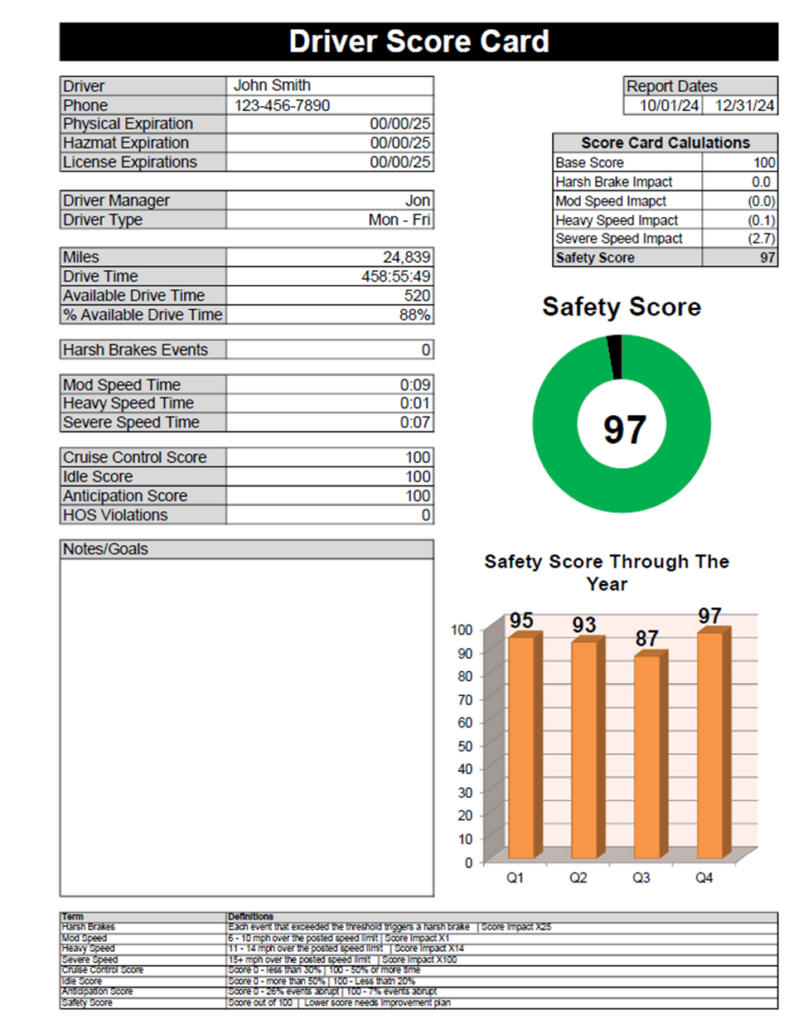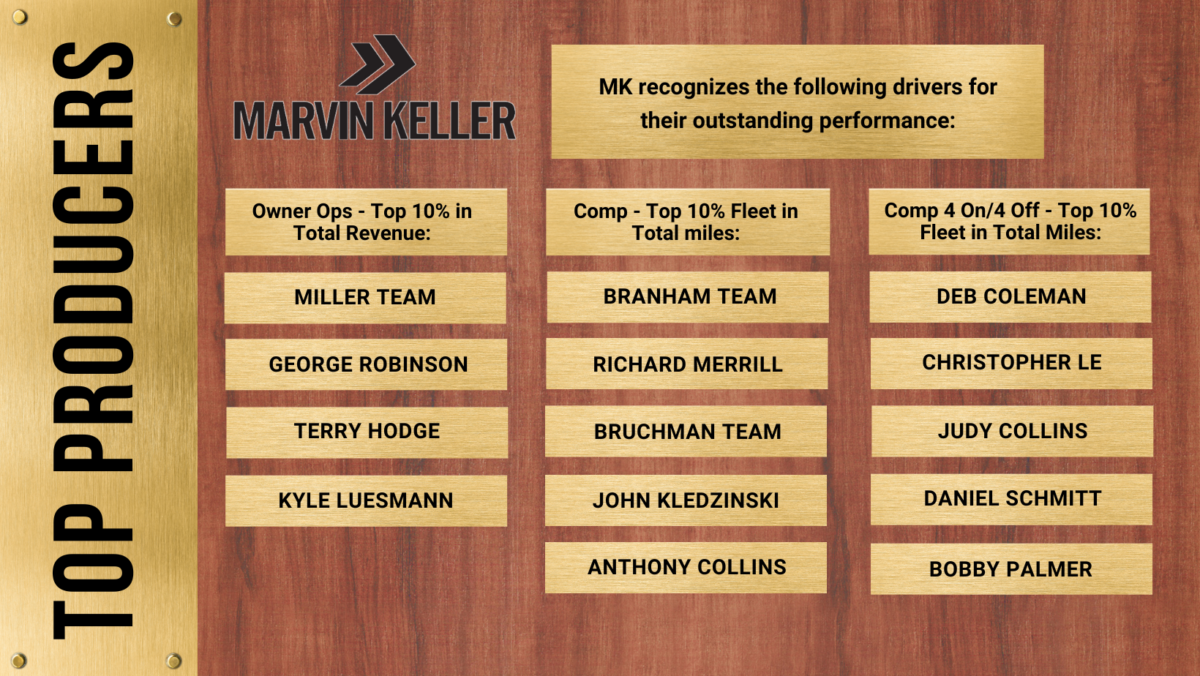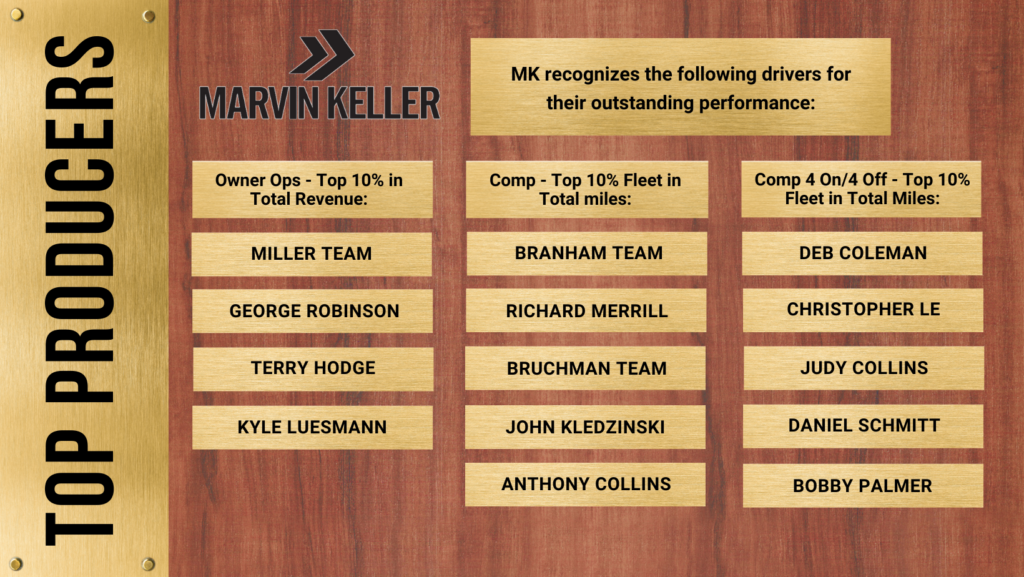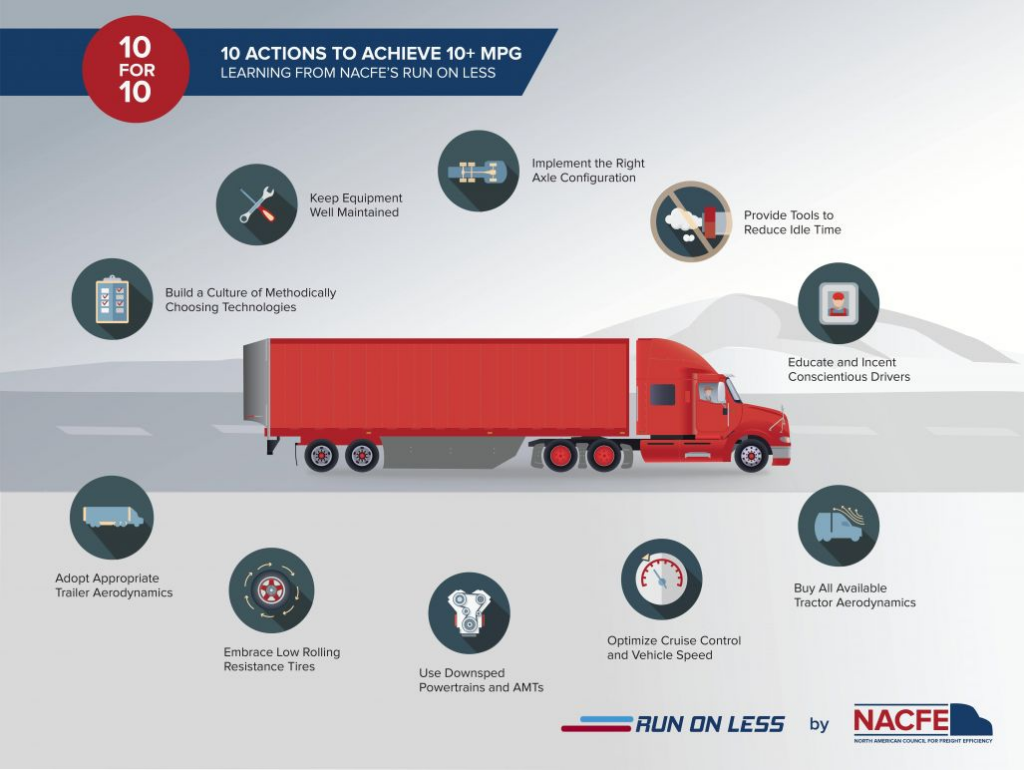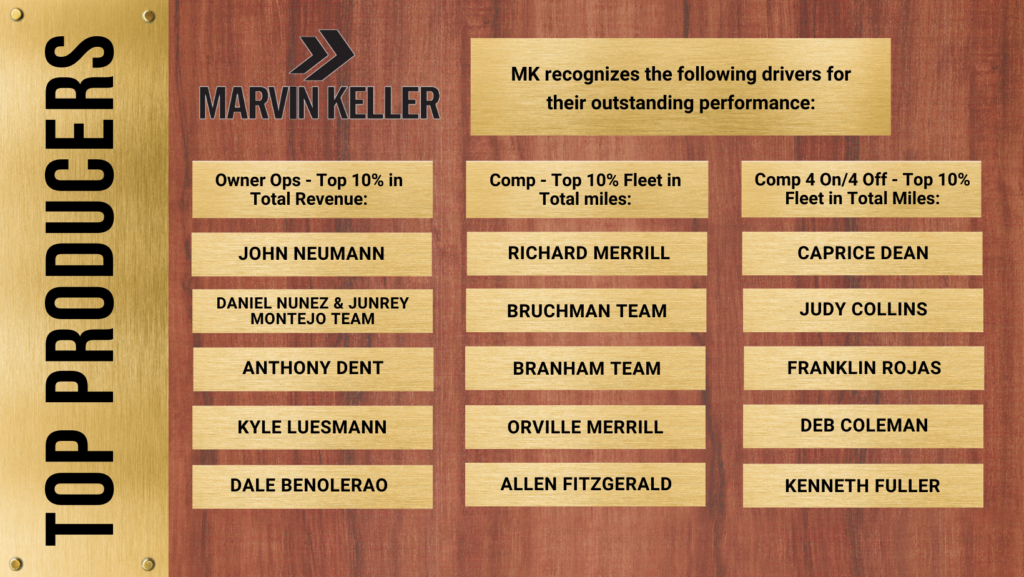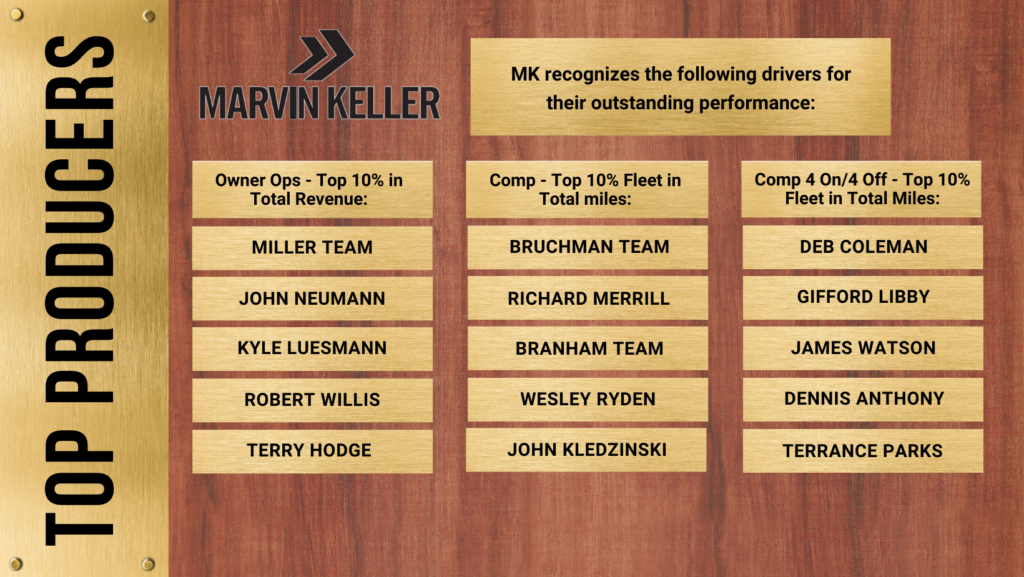Our elite fleet is recognized as one of the best in the industry, thanks to our commitment to high performance standards. Every quarter, we assess individual driver performance through what we call Driver Scorecards. The scorecard helps us identify both strengths and areas for improvement. With these results, our team is able to give the proper tools and resources that are needed to help every driver perform at the highest level.
Key Categories in the Scorecard:
Driver time:
- Miles Driven: We track how many miles each driver covers in the quarter.
- Total Driver Time: We analyze the total time spent driving during the quarter.
- Available Drive Time: We examine the percentage of available drive time based on the driver’s schedule.
Safety:
We closely monitor several key safety metrics to ensure safe driving practices:
- Harsh Brakes
- Speed
- Cruise Control usage
- Idle Time
- Anticipation (smooth driving)
- Hours of Service (HOS) violations
The Purpose of the Scorecard:
The goal of the quarterly scorecard is to provide actionable insights for both the driver and the company. Here’s why we invest in this process:
- Recognizing Strengths & Areas for Improvement: The scorecard highlights where drivers excel and where support or training may be needed.
- Setting Goals & Improvement Plans: Both drivers and driver managers look at the data and work together to establish improvement goals. Whether it’s reducing harsh braking or increasing available drive time, the scorecard provides a clear foundation for performance goals.
- Accountability: Your individual performance impacts the entire fleet. This shared responsibility ensures that we all work together towards achieving our collective goals and maintaining our standing as a top-tier carrier in the industry.
The Driver Scorecard is more than just a report—it’s a tool for growth, accountability, and continuous improvement. Our goal is to help every driver achieve elite-fleet status, where safety, efficiency, and performance are fully optimized. By collaborating closely, we ensure that each driver remains safe, efficient, and consistently performs at their best, setting the bar for excellence and leading the way in the industry.
